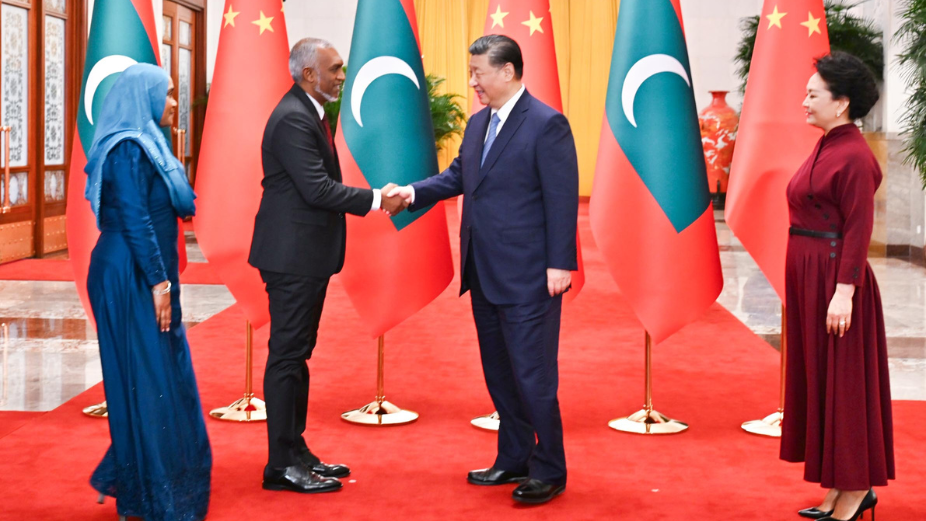
Speaking at the 59th Independence Day celebrations held at the Social Centre last night, President Dr Mohamed Muizzu highlighted the crucial support from India and China in managing the Maldives’ foreign debt. He noted that these countries are playing crucial roles in helping the Maldives find more manageable ways to repay their debts.
India has already deferred USD 50 million in debt and extended the food quota for two more years, making the remaining funds in the line of credit accessible. “The Chinese government has given the green signal to defer our loans from the Exim Bank of China for various development projects for the next five years. The technical work is now underway,” President Muizzu stated. The UAE is also expected to provide similar assistance. “The UAE government has been very supportive and has given the green signal to defer the loan for the next five years,” the President added.
President Muizzu emphasised that such foreign policy initiatives are crucial in protecting a country’s independence. By securing these deferments, the Maldives can alleviate immediate financial pressures, allowing more focus on economic growth and development.
China’s Role and Implications
If China were to proceed with deferring the Maldives’ loans from the Exim Bank of China, it would likely involve restructuring the existing debt terms, potentially lowering interest rates or extending the repayment period. Such a move would provide the Maldives with breathing room to stabilise its economy and invest in development projects without the immediate burden of debt repayment.
For the Maldives, this deferment would mean a significant reduction in short-term financial stress, enabling the government to allocate resources to critical sectors such as infrastructure, healthcare, and education. It would also enhance the Maldives’ capacity to attract further investment and aid, fostering a more favourable economic environment.
However, this increased reliance on Chinese financial support could also deepen economic and political ties between the two countries, potentially influencing the Maldives’ foreign policy decisions. While beneficial in the short term, it is crucial for the Maldives to maintain a balanced approach to its international relations to safeguard its sovereignty and independence.
Contradiction to President’s Economic Sovereignty Vision
These foreign assistance measures, while easing immediate financial burdens, stand in contrast to President Muizzu’s vision for economic sovereignty. Relying heavily on external support from countries like India and China could complicate efforts to achieve true economic independence. This dichotomy illustrates the challenges of navigating global interdependencies while striving for national autonomy.
As the Maldives navigates these financial challenges, the role of international partnerships will be essential in shaping its future trajectory.












